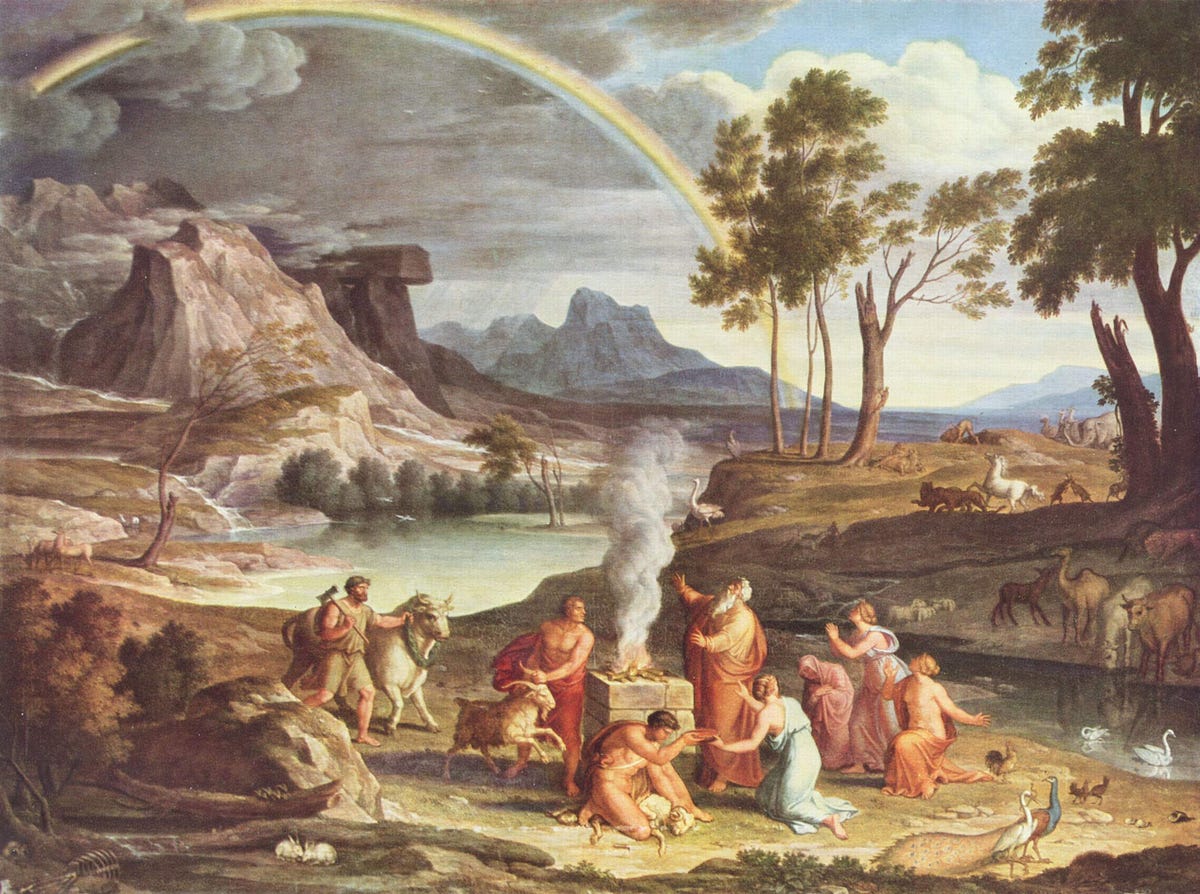Genesis 9:11-13 (ESV)
“I establish my covenant with you, that never again shall all flesh be cut off by the waters of the flood, and never again shall there be a flood to destroy the earth.” And God said, “This is the sign of the covenant that I make between me and you and every living creature that is with you, for all future generations: I have set my bow in the cloud, and it shall be a sign of the covenant between me and the earth.”
A covenant is a binding agreement between God and His people, whereby God makes certain promises, and usually though not always, includes certain stipulations. In the Bible, there are five major covenants that are outrightly expressed – the Noahic Covenant, the Abrahamic Covenant, the Mosaic Covenant, the Davidic Covenant, and the New Covenant. These covenants preserve the redemptive plan of God and each succeeding covenant builds on the previous covenants until they find their climax in Christ Jesus, the mediator of the New Covenant.
The covenant that God makes with Noah is actually a covenant with all of creation and spans Genesis 8:20 to Genesis 9:17. In this particular covenant, God promises never again to destroy the whole earth as He had done. He rehashes the blessing given to Adam and Eve to be fruitful and multiply. Notice that God was not making this covenant because mankind had changed from their evil ways as we see in Genesis 6 but rather God was making a promise to spare mankind and all creation from total annihilation on account of their iniquity. This is how the Bible puts it in Genesis 8:21, “And when the Lord smelled the pleasing aroma, the Lord said in his heart, “I will never again curse the ground because of man, for the intention of man’s heart is evil from his youth. Neither will I ever again strike down every living creature as I have done.”
To date, we continue enjoying the covenant that God made with Noah. Despite man’s continued wickedness and rebellion against God, we have been spared from the wrath of God that would have completely destroyed us. This particular covenant, which also acted as a preservation of the seed of the woman mentioned in Genesis 3, ultimately found its fulfilment in the person and work of Christ Jesus. God, in the person of Christ, took upon Himself the punishment of our sins so that we who place our faith in Him would be spared from the penalty of sin which is death.
Reflections
1. What is your understanding of covenants?
2. How does bow as a sign of the Noahic covenant relate to Christ?
3. How does your understanding of the Noahic covenant aid in your worship of God?



